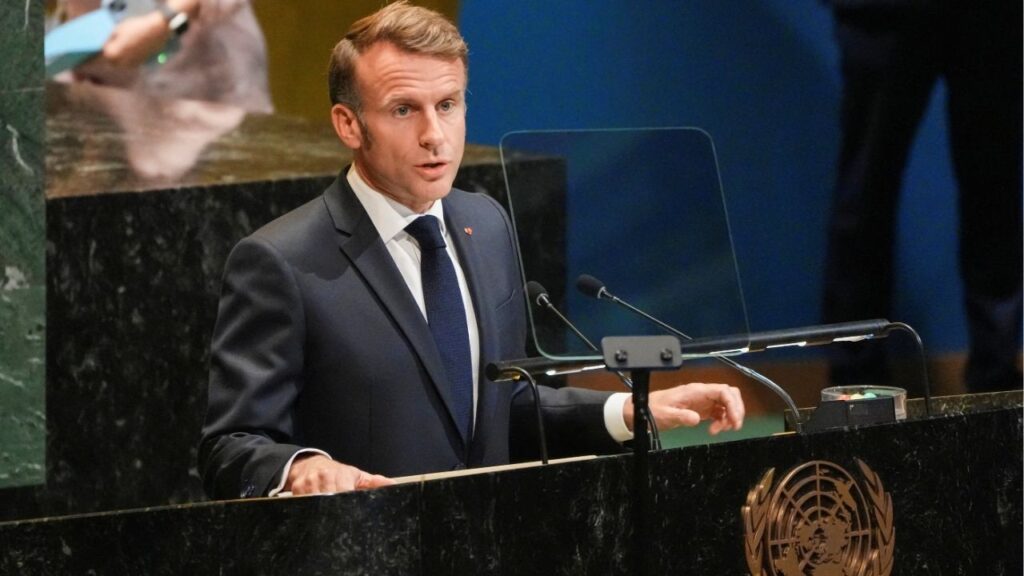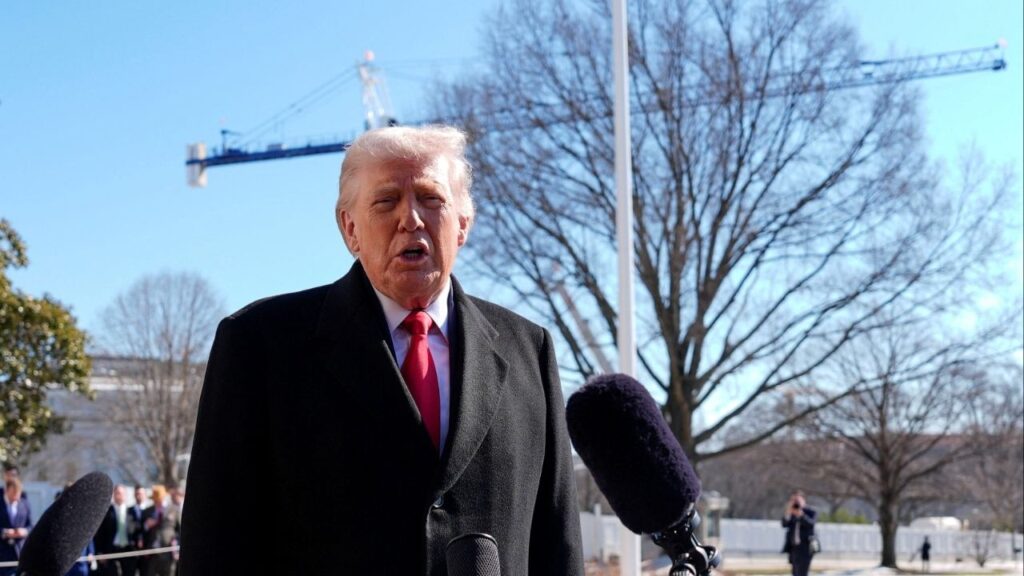SEC Chair Gary Gensler, known for his tough stance on cryptocurrencies, announces his departure amid industry pushback and Trump's victory. (AP File)

- Gensler's aggressive oversight of cryptocurrencies faced criticism from the industry and Republicans as overreach.
- Bitcoin surged to nearly $100,000 following Trump's victory and Gensler's resignation announcement.
- The SEC under Gensler approved bitcoin ETFs while maintaining a cautious stance on the cryptocurrency's merits.
Share
|
Getting your Trinity Audio player ready...
|
NEW YORK – Securities and Exchange Commission Chair Gary Gensler, who was aggressive in his oversight of cryptocurrencies, will step down from his post on January 20.
Gensler pushed for changes that he said protected for investors, but the industry and many Republicans bristled at what they saw as overreach.
President-elect Donald Trump had promised during his campaign that he would remove Gensler. But Gensler on Thursday announced that he would be stepping down from his post on the day that Trump is inaugurated.
Related Story: Bitcoin Is at the Doorstep of $100,000 as Post-Election Rally Rolls On
Bitcoin Surges Following Gensler’s Resignation
Bitcoin has jumped 40% since Trump’s victory. It hit new highs and was nearing $100,000 Thursday. Bitcoin moved notably higher after his resignation was announced.
Perhaps most famously, Gensler gave a speech during the first year of his chairmanship in 2021 where he described the world of crypto as “the Wild West.”
“This asset class is rife with fraud, scams, and abuse in certain applications,” he said in a speech at the Aspen Security Forum. “There’s a great deal of hype and spin about how crypto assets work. In many cases, investors aren’t able to get rigorous, balanced, and complete information.”
Related Story: Trump Win Ignites Crypto Frenzy That Sends Bitcoin to a Record High
SEC’s Actions Against Crypto Industry Under Gensler
Under Gensler, the SEC brought actions against players in the crypto industry for fraud, wash trading and other violations. The commission brought fraud charges last month, for example, against three companies purporting to be market makers, along with nine individuals for trying to manipulate various crypto markets.
The SEC under Gensler also helped to make bitcoin accessible to more investors. In January of 2024, the SEC approved exchange-traded funds that track the spot price of bitcoin. With such ETFs, investors could get easier access to bitcoin without having to buy any directly.
At the time, Gensler acknowledged the SEC had denied earlier, similar applications for such ETFs, including one involving the Grayscale Bitcoin Trust, among the first to eventually be approved by the SEC.
“Circumstances, however, have changed,” Gensler said, pointing to a ruling by the U.S. Court of Appeals for the District of Columbia that said the SEC failed to adequately explain its reasoning in rejecting Grayscale’s proposal.
Related Story: Cryptocurrency Markets, Promoted by Trump, Brace for Election Volatility
Gensler’s Final Remarks as SEC Chair
Even there, though, Gensler made sure not to endorse the merits of bitcoin. He pointed to how ETFs that hold precious metals are tracking prices of things that have “consumer and industrial users, while in contrast bitcoin is primarily a speculative, volatile asset that’s also used for illicit activity including ransomware, money laundering, sanction evasion, and terrorist financing.”
On Thursday, Gensler stood by the SEC’s track record under his direction.
“The staff and the Commission are deeply mission-driven, focused on protecting investors, facilitating capital formation, and ensuring that the markets work for investors and issuers alike,” Gensler said in prepared remarks Thursday. “The staff comprises true public servants. It has been an honor of a lifetime to serve with them on behalf of everyday Americans and ensure that our capital markets remain the best in the world.”
Gensler previously served as Chair of the U.S. Commodity Futures Trading Commission, leading the Obama Administration’s reform of the $400 trillion swaps market. He also was senior advisor to U.S. Senator Paul Sarbanes in writing the Sarbanes-Oxley Act (2002) and was undersecretary of the Treasury for Domestic Finance and assistant secretary of the Treasury from 1997-2001.



















